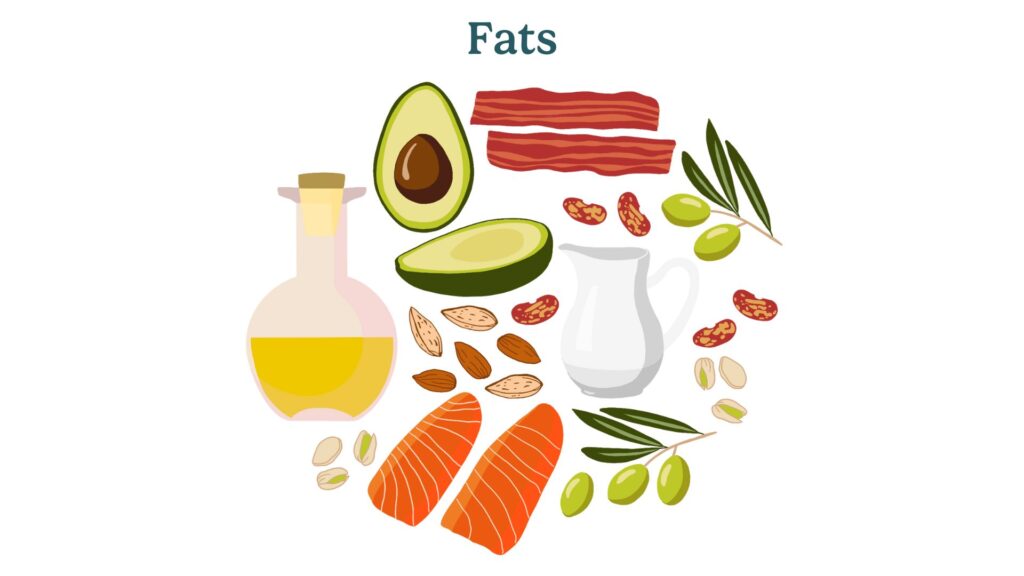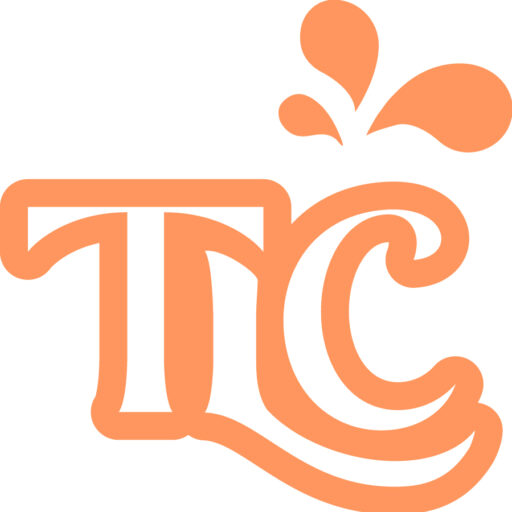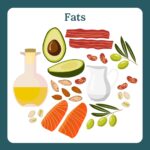fats

Fats
Fats, also known as lipids, are an essential nutrient for your body, providing energy, supporting cell growth, protecting your organs, and helping absorb certain vitamins.
During breastfeeding, fats in your diet are important for both your health and your baby’s development, especially for brain and eye development.
What to watch out for
Make sure you get enough healthy fats while breastfeeding to maintain your energy levels and provide essential nutrients to your baby:
- Types of fats: Focus on consuming healthy fats, such as monounsaturated and polyunsaturated fats, found in foods like avocados, nuts, seeds, and fish. Avoid trans fats and limit saturated fats, which can be found in fried foods, processed snacks, and fatty meats.
- Omega-3 fatty acids: These are essential fats that play a crucial role in brain and eye development for your baby. Good sources include fatty fish (like salmon and sardines), flaxseeds, chia seeds, and walnuts. Try to include these in your diet regularly.
- Energy levels: Fats provide a concentrated source of energy, which is important for maintaining your stamina while caring for a newborn. Including healthy fats in your meals can help you feel fuller longer and sustain your energy throughout the day.
- Breastmilk composition: The fats you consume directly affect the fat composition of your breastmilk. A diet rich in healthy fats ensures your breastmilk contains essential fatty acids beneficial for your baby’s growth and development.
If you have concerns about your diet or fat intake, consult a healthcare provider or nutritionist for personalized advice.
Physical limitations or health circumstances
Certain conditions can affect how you utilize fats:
- High cholesterol: If you have high cholesterol, focus on consuming healthy fats and avoid trans fats and high saturated fats. Incorporate more plant-based fats, such as those from avocados, nuts, and seeds, which can help manage cholesterol levels.
- Digestive issues: Conditions like gallbladder disease or pancreatitis can affect fat digestion. If you have any digestive issues, work with a healthcare provider to create a diet plan that helps you get the necessary fats without causing discomfort.
- Allergies: If you have allergies to certain fat sources, such as nuts or fish, find alternative sources of healthy fats, such as seeds and plant oils, to meet your nutritional needs.
Other terms
- Monounsaturated fats: Healthy fats found in foods like avocados, olive oil, and nuts. They help reduce bad cholesterol levels and provide essential nutrients.
- Polyunsaturated fats: Another type of healthy fat found in fatty fish, flaxseeds, chia seeds, and walnuts. They include omega-3 and omega-6 fatty acids, which are important for brain health.
- Trans fats: Unhealthy fats found in many processed and fried foods. They can increase bad cholesterol levels and should be avoided.
- Saturated fats: Fats found in animal products like meat and dairy. While necessary in small amounts, they should be limited to maintain heart health.
- Triglycerides: The main form of fat in the body and in foods. High levels of triglycerides can increase the risk of heart disease, so it's important to balance fat intake.


